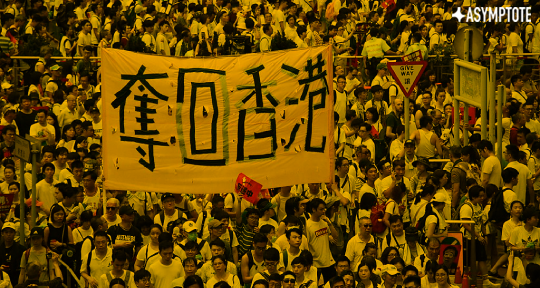Our team of editors from around the globe bring you the latest in literary news on the ground. Read on to find out about regional language promotion in Catalonia, author talks in Hong Kong, and translation awards in the Philippines!
MARGENTO, Editor-at-Large, reporting from Catalonia
The old part of the city of Barcelona is getting drowned in the infectious salsa and rumba rhythms of the Festa Major de Gràcia this week, with the burro’s alleys and pedestrian areas being taken over by local crafts and cuisine alongside decorations ranging from overhead wooden chairs to colourful balloons to giant dragons you can walk through. But another more discrete yet equally pervasive phenomenon is also underway. The fiesta’s versatile mobile app is indicative of the overwhelming digital initiatives in the city and across the province of Catalonia, which are more often than not closely tied with the region’s rich literature, arts, and assertive linguistic and cultural individuality.
The exhibition Nova Pantalla. El videojoc a Catalunya (New Screen: Videogames in Catalonia) at Palau Robert, for instance, boasts a wide range of on-site interactive pieces from both small/indie studios and major players committed to making Catalonian language and culture more present in the industry. As short of sixty percent of the sector’s output involves games and apps in the region’s language, the featured designers and programmers make clear statements about the creative multi-art poetics of their endeavors. Innovative technology is informed by traditional storytelling, visual arts, and text, resonating with other strong trends in present-day Catalonia.
A rich repository of Catalonian and transnational cultural data is represented by the free digital journalism platform VilaWeb, which claims the legacies of writers as diverse as Albert Camus and the thirteenth-century Catalan poet and Neoplatonic-Christian mystic Ramon Llull as inspirational for the development of the contemporary Catalan language. Another example of Catalonian culture in the digital space could be experienced in May of this year, when the festival Barcelona Poesia reemerging from the pandemic with a vigorous multilingual and cross-artform approach to poetry (as did the more avant-garde but less publicized Festival Alcools) substantially present in digital space and social media. READ MORE…





